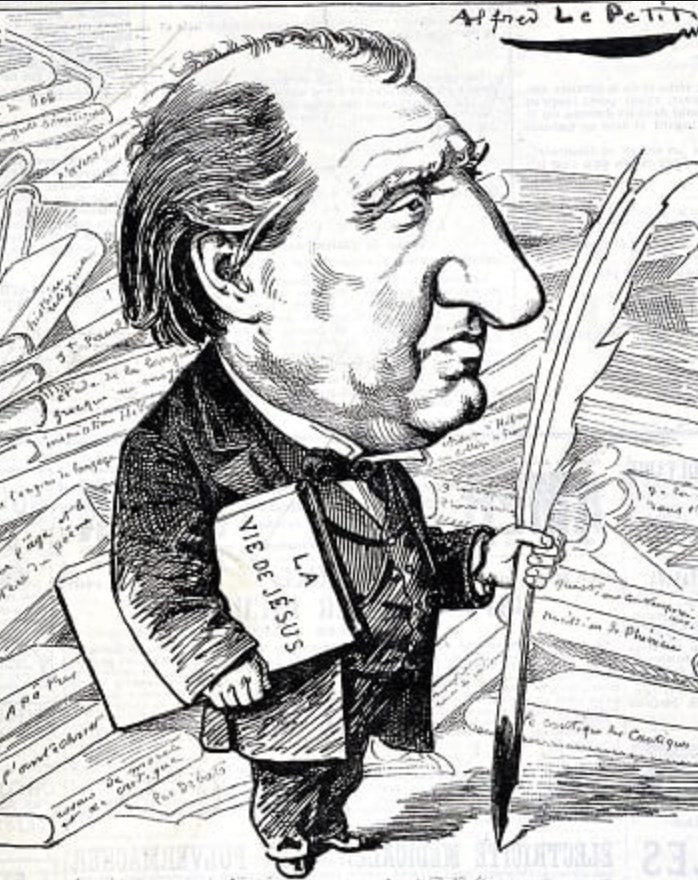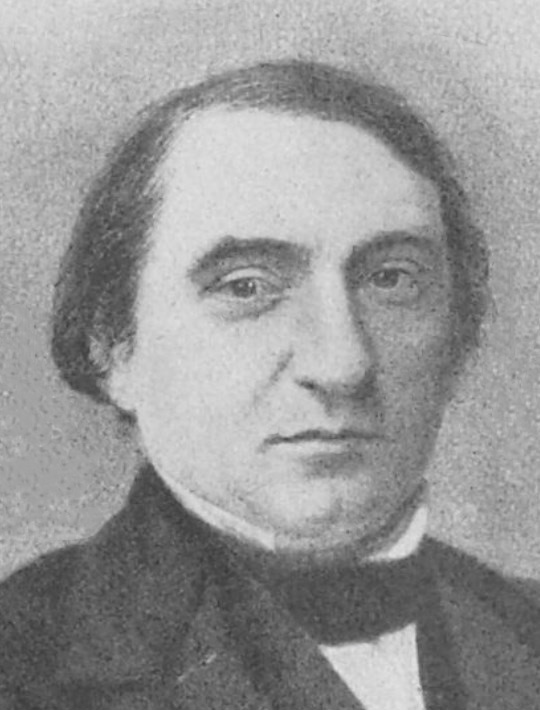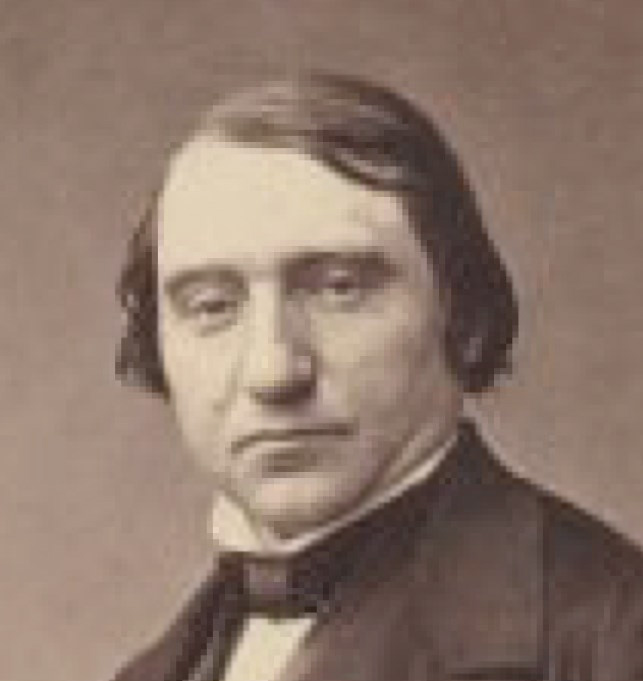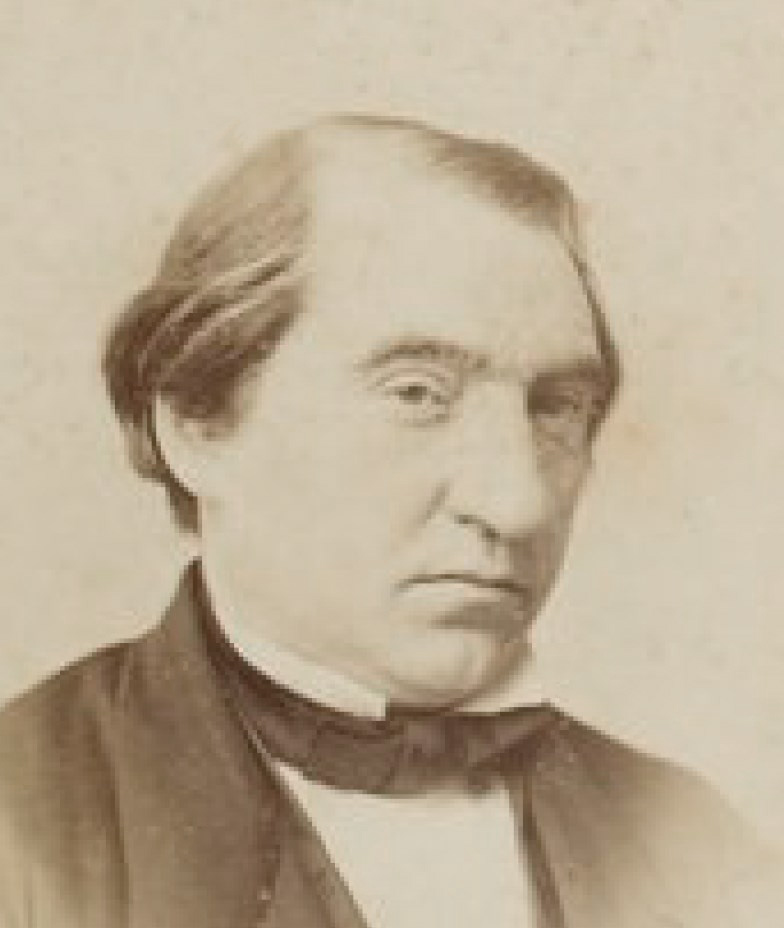Joseph Ernest Renan (1823 -1892), writer, philosopher, orientalist
1st image: Soirée; 2nd: photogravure Lemercier (1850s); 3rd: photo Receuil des Artistes (1855); 4th: by Halévy (1860). (Alternative: Blanche)
Ernest Renan was one of the most original and influential thinkers of the late 19th century—a literary artist, orientalist, and scholar whose works shaped intellectual discourse across Europe.
A master of Hebrew, Renan was employed at the Bibliothèque Nationale, where he quickly gained recognition for his expertise in Semitic languages. In 1849, he was entrusted with an eight-month mission across Italian cities, including the Vatican libraries, to study Italian history and Christian origins through oriental manuscripts. His report, completed in September 1850, would have undoubtedly led to an invitation to present his findings at one of the vendredi-soirées, though there is no known caricature of him by Eugène Giraud11

Renan was offered membership in the Académie Française in 1856—the same year he married Cornélie Scheffer, niece of painter Ary Scheffer41a. They settled in the Scheffer-Renan House, now the Musée de la Vie Romantique in Paris.
In 1860, accompanied by his beloved sister Henriette, Renan undertook another historical mission to Ottoman Syria and Palestine.
Henriette tragically passed away in Byblos in 1861, a loss that profoundly shaped Renan’s worldview and inspired him to write Vie de Jésus (Life of Jesus), a groundbreaking work that ignited controversy throughout Europe for its perspectives on Jesus and Judaism.
The book influenced a vast array of intellectuals, including Vincent van Gogh, James Joyce, and Albert Schweitzer —though it also found an unlikely reader in Mussolini.
Renan frequently dined with an intimate group of artistic friends, including Chennevières20, Sainte-Beuve, Flaubert, and George Sand. He often stayed at Sand’s château in Nohant. Among his admirers was Julie Bonaparte, granddaughter of Napoleon and a close friend of Princess Mathilde and the Empress, who revered Renan and his writings.
One of Renen's most enduring quotations remains relevant today:
“Our opinions become fixed at the point where we stop thinking.”



